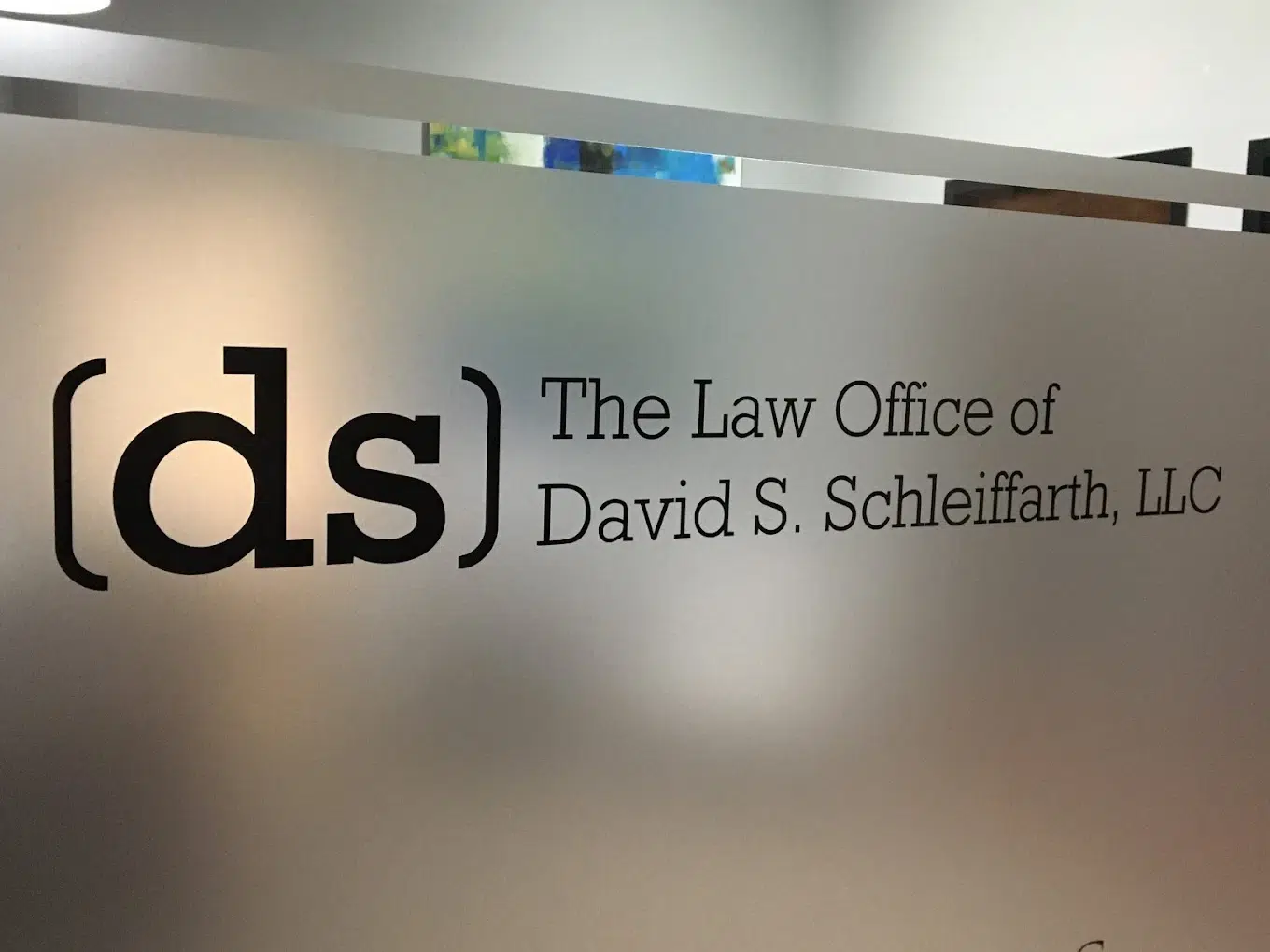Totten Trusts Attorney
As trusted estate planning attorneys in St. Louis, we’ve helped countless Missourians leverage their trusts and other estate planning tools to ensure long-term financial security. Need top-tier estate planning solutions? Contact David S. Schleiffarth to explore your options today.
You’ve worked hard to establish financial stability, and not just for yourself — for your family members and loved ones, too. Whenever life brought you to crossroads, you made the difficult decisions, sacrificing short-term satisfaction for long-term security. Now, it’s time to ensure that all of your diligent financial decisions weren’t made in vain, and the best way to do that is through comprehensive estate planning.
With a top-tier estate plan in place, you can rest assured that all of your assets, whether they include real estate, investments, personal property, or something else, are protected from creditor claims and excessive taxation. If properly structured, your estate plan will ensure that your estate is divided and distributed according to your wishes, in the most advantageous way possible.
As trusted estate planning attorneys in St. Louis, we utilize a wide variety of tools to meet your specific estate planning goals and needs. One of the most popular estate planning tools is a legal arrangement called a trust, and it comes in numerous forms, including the totten trust. The totten trust, which is also called a payable-on-death account (POD account), is a unique legal tool that guarantees a smooth transfer of assets upon death — without the need for probate.
Wondering if a totten trust could be right for you? The best way to explore your options is by soliciting legal advice from a top-tier estate planning lawyer in St. Louis. In the meantime, keep reading to learn everything you need to know about this specialized trust, including why people use totten trusts, their potential benefits and drawbacks, and more.
At the Law Office of David S. Schleiffarth, we take pride in providing expert estate planning guidance to clients in St. Louis and beyond. Ready to protect your family’s financial future and secure your legacy? Reach out to us online to schedule your first appointment.
Why People Use Totten Trusts to Avoid Probate
Some types of trust rely on complex mechanisms to transfer assets to beneficiaries, but not the totten trust. Known for its simplicity and efficiency, this special trust allows the grantor (the trust’s creator and account owner) to open a bank account and name a beneficiary who will receive the account’s funds upon the grantor’s death. During the grantor’s lifetime, they retain full control and ownership of the account, can deposit and withdraw funds, change beneficiaries, and even close the account altogether.
Because a totten trust automatically transfers the account’s assets to the beneficiary upon the grantor’s death, it is able to circumvent the probate process — and the delays, costs, and inconveniences associated with it. This estate planning tool is particularly beneficial to individuals who wish to provide their beneficiaries with immediate access to funds.
In summary, individuals often choose totten trusts to avoid probate court for several key reasons, including the following:
- Immediacy and cost-savings. Probate is a lengthy, potentially expensive process that could take months or more than a year to complete, delaying an individual’s beneficiaries from being able to access funds quickly. The totten trust saves heirs time and money.
- Simplicity. Compared to other types of trust, totten trusts are very straightforward, bypassing many of the complexities and formalities associated with establishing a traditional trust. The grantor merely needs to create a bank account (or use their current one) and designate a beneficiary.
- Avoiding estate freezes. Oftentimes, a decedent’s assets are frozen until the estate is settled through probate, which can put a significant financial burden on their surviving loved ones. A totten trust ensures that the designated beneficiary receives funds without delay.
- Privacy. Probate proceedings go on the public record, meaning that anyone can access potentially sensitive information about the estate, including details about assets and beneficiaries. Conversely, totten trusts, their contents, and their beneficiaries are not public knowledge.
Ultimately, totten trusts provide a practical, cost-effective, and private mechanism for transferring assets to beneficiaries without delay. However, they are not ideal for every person or in every situation.
Benefits of a Totten Trust
For most people, avoiding probate is the primary benefit of totten trusts, but that is by no means the only potential advantage. As discussed above, totten trusts provide simplicity, efficiency, privacy, and cost-savings, allowing a decedent to access assets without delay. Here are a few additional benefits:
- Control. Unlike some trusts, totten trusts allow the account holder to retain full control over of assets during their lifetime, make deposits and withdrawals without penalties, change beneficiaries, and more.
- Avoiding additional taxation. Although assets in a totten trust are considered part of the account holder’s estate for tax purposes, they are not subject to additional taxes, making it a tax-neutral trust option.
- Low-risk of disputes. With clearly specified beneficiaries and a streamlined legal process, totten trusts minimize the risk of legal challenges and family disagreements.
At the end of the day, totten trusts provide a practical, efficient, and private way to quickly transfer assets to a beneficiary for immediate access. Depending on your specific financial situation and goals, however, this may not be the most ideal estate planning tool for you.
The Disadvantages of Totten Trusts
Although totten trusts offer many potential benefits, they can also come with downsides — especially for individuals who require highly customizable estate planning tools. Here are a few of the potential disadvantages of this estate planning tool:
- Limited scope of assets. Totten trusts only apply to certain types of financial accounts, including bank accounts, certificates of deposit, and similar assets; they can’t include real estate, personal property, or other types of investments.
- Lack of asset protection. Unlike some estate planning tools, totten trusts do not offer protection from creditors, meaning that a grantor’s assets are subject to claims from their creditors — both before and after their death.
- Unrestricted use by beneficiaries. After the grantor passes away, their trust beneficiary receives the totten trust’s assets without limitation, which could lead to mismanagement and financial issues. If your named beneficiary has problematic spending habits or wouldn’t benefit from immediate access to funds, you may want to explore other options, such as a spendthrift trust.
- No tax advantages. Totten trusts are tax-neutral, meaning that while they don’t incur additional taxation, they also aren’t exempt from taxes. If you want to avoid estate tax, you may benefit from exploring certain irrevocable trusts, charitable remainder trusts, or grantor retained annuity trusts (GRATs).
Despite offering distinct benefits to some individuals, totten trusts also come with limitations and potential drawbacks. An experienced estate planning professional can help you determine whether or not a totten trust is right for you.
Who Might Need a Totten Trust?
If you read through the potential advantages and disadvantages of a totten trust, you probably have a pretty good idea of whether or not this type of trust could be beneficial to you. Although totten trusts serve a valuable purpose for many individuals, they are most likely to benefit the following groups:
- Individuals who want to avoid probate
- Parents with minor children who need to ensure immediate access to funds
- Elderly individuals who value a smooth transfer of funds without legal complications
- Individuals with dependents who don’t have other sources of immediate income
- Private individuals who want to keep their financial affairs off the public record
- Individuals with straightforward financial situations and limited assets
Keep in mind that while totten trusts typically benefit these groups more than others, their ability to further your estate planning goals depends on various complex factors. Fortunately, you don’t have to figure it out alone.


David S. Schleiffarth: a Trusted
Estate Planning Lawyer in St.
Louis, Missouri
There’s a reason so many Missourians continue to choose us for their estate planning needs. With years of experiences, resources, and unparalleled expertise, our law firm combines the highest level of professionalism and ethics with strategic legal insights to offer top-quality estate planning services at reasonable rates. Ready to secure your financial future? Getting started with us is easy: Simply contact us online to schedule an initial consultation or call us at (314) 448-0527.
Our Process
Approachable Estate Planning. From start to finish, we are here to shoulder the load and make Estate Planning easy!
STEP 1
Make an appointment
Call, text, or email and we will find a time that works with your schedule.
STEP 2
Initial appointment
We discuss your life, family, financial situation, & Estate Planning goals. You do not need to bring anything.
STEP 3
Drafting
You do nothing. Relax and we will prepare drafts of your documents in approximately 2 weeks.
STEP 4
Review & approval
You look over your documents. We answer questions and make any changes as needed.
STEP 5
Signing appointment
Once your documents have met your satisfaction, you will sign the final drafts at our office. (In front of 2 witnesses and a notary–provided by us, of course).